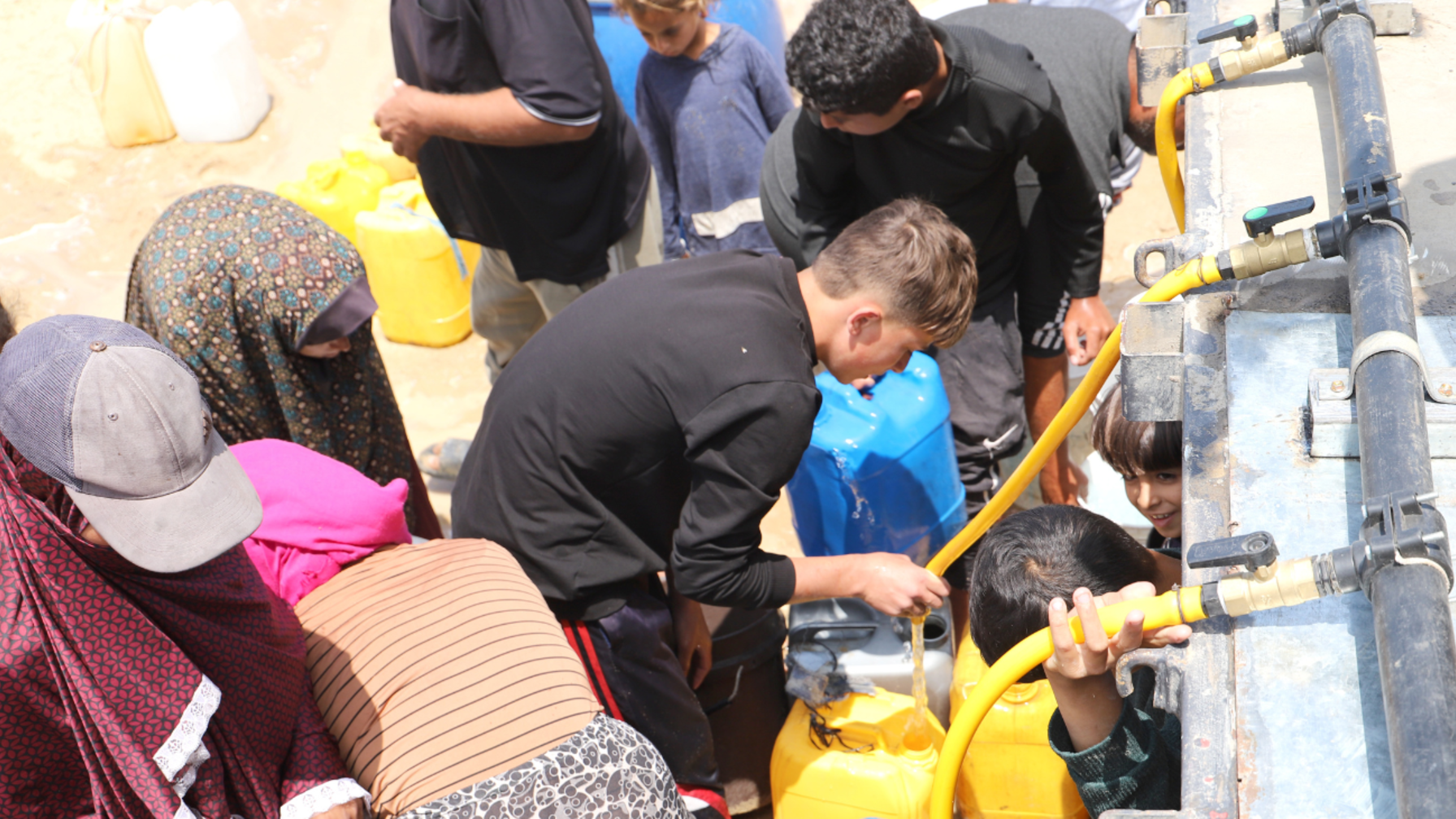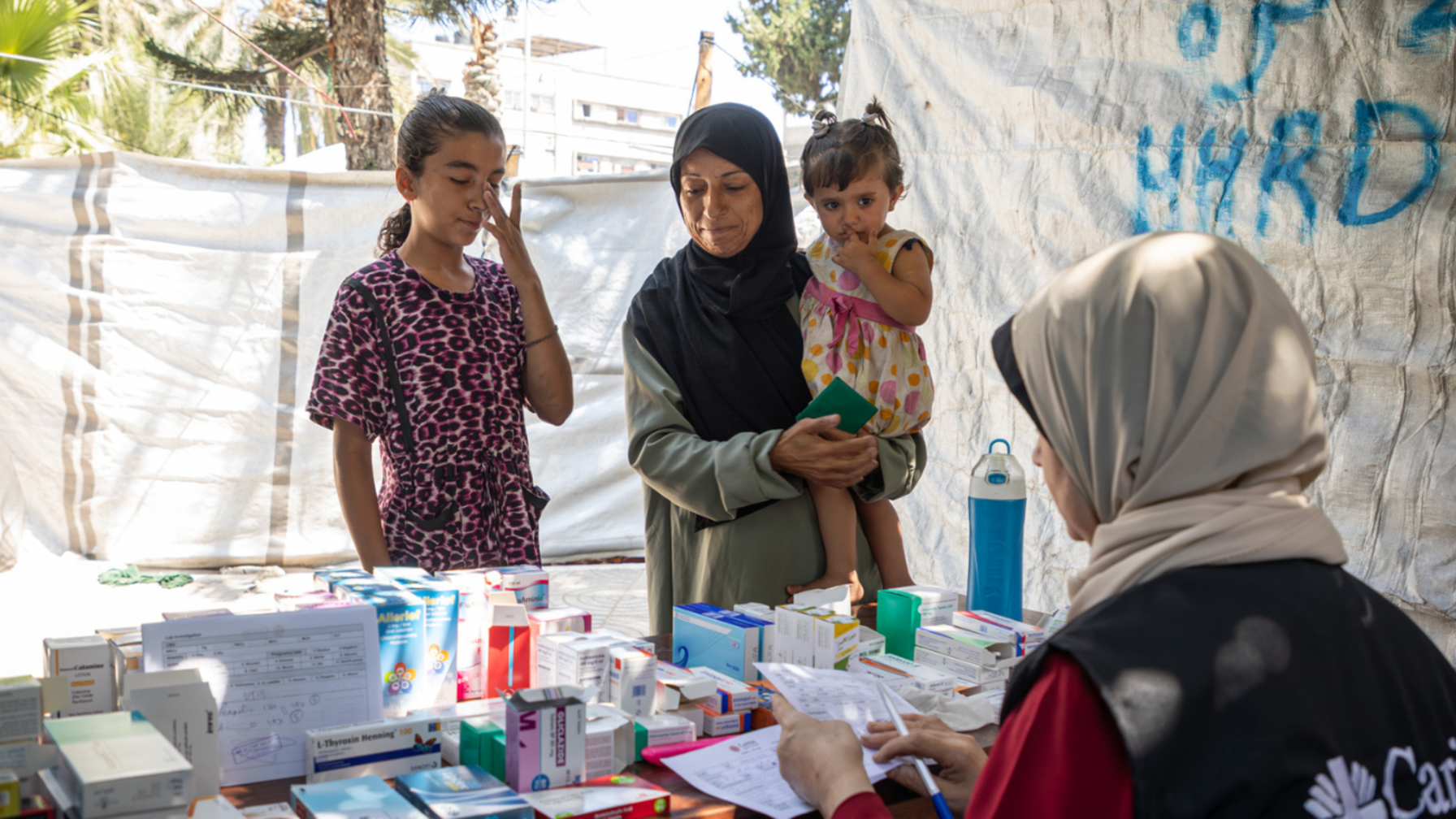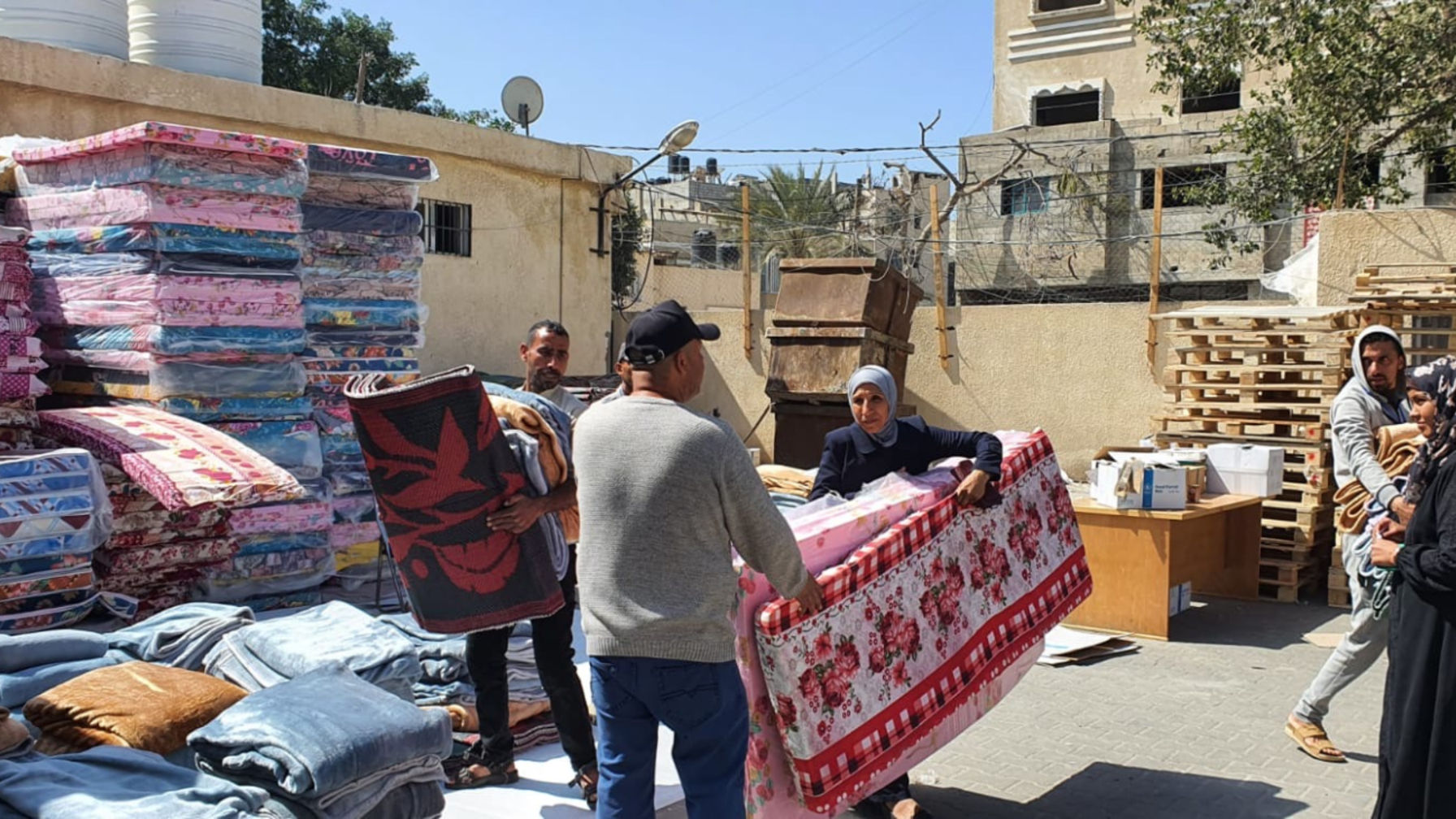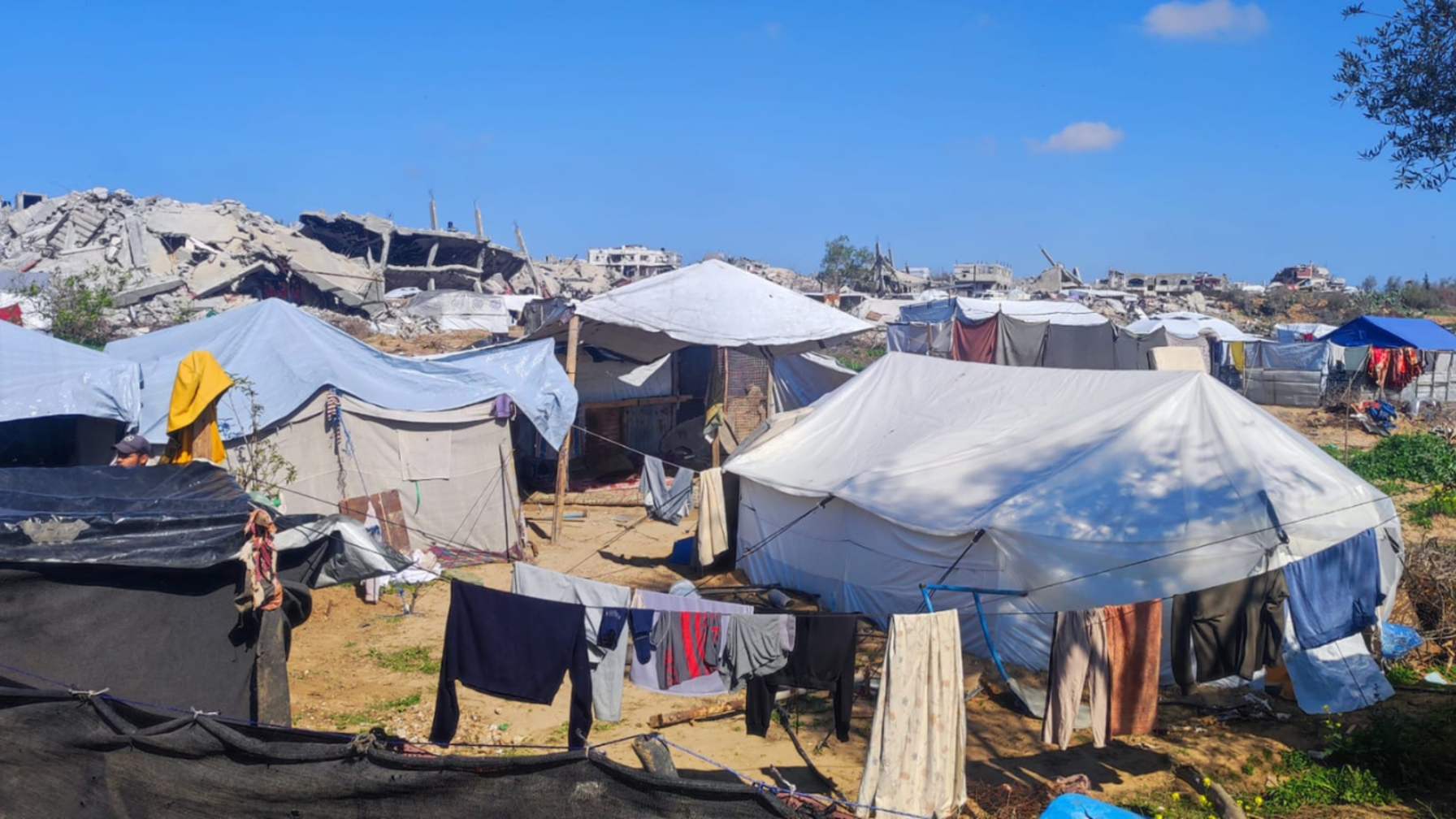


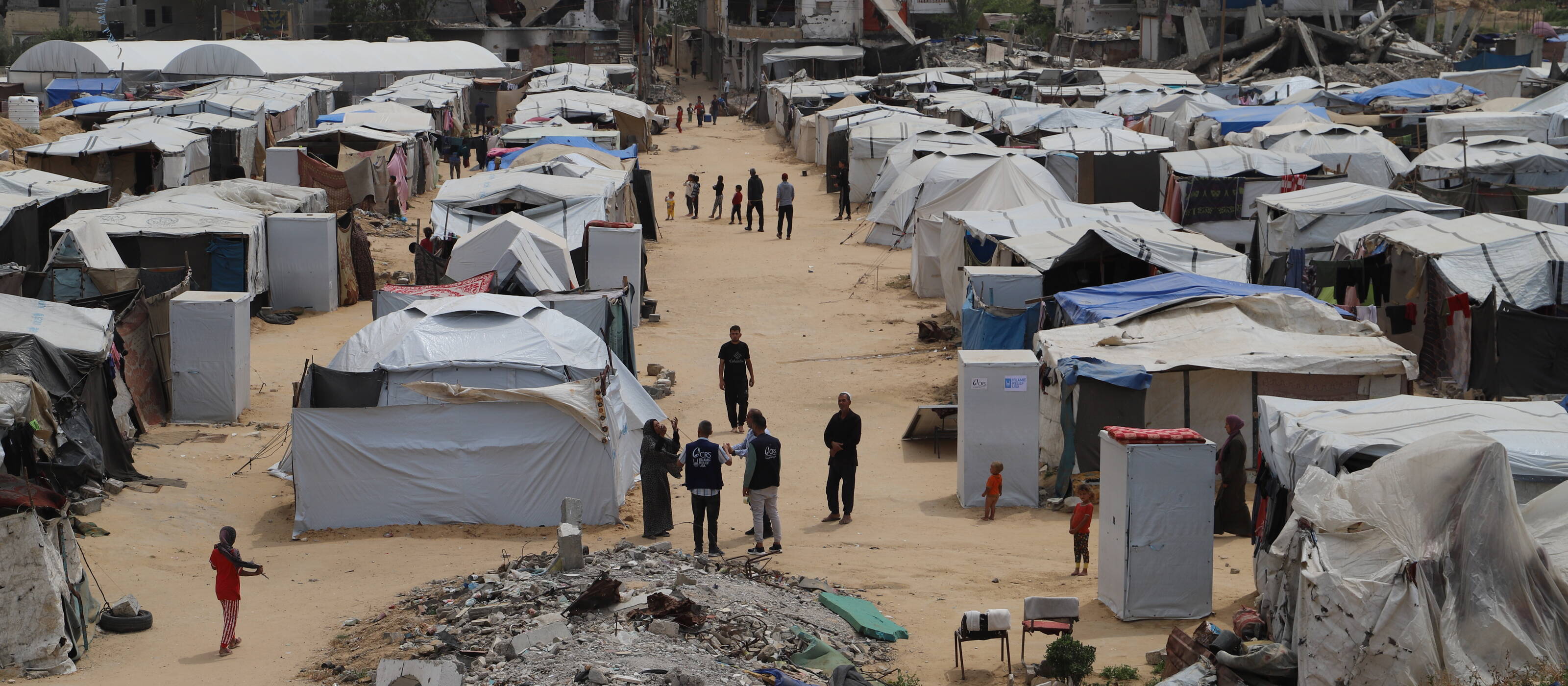

Help for people affected by the Gaza war
Your donation for those affected by the conflict in the Gaza Strip
The humanitarian situation in the Gaza Strip is catastrophic. The ceasefire agreed in October gives hope for improvement. However, due to the immense destruction of infrastructure, hundreds of thousands of people in urgent need of assistance. Caritas Switzerland and its partner organizations are ready to immediately expand their aid to the suffering civilian population as soon as possible.
Since the brutal attack by armed Hamas fighters in October 2023, Israel has been waging war in the Gaza Strip and West Bank, causing immeasurable suffering for the civilian population. People lack everything. For months, the import and distribution of humanitarian goods has been largely blocked; the UN is talking about a famine.
A ceasefire has finally been agreed upon. The parties have committed to allowing extensive deliveries of relief supplies. Caritas Switzerland's partner organizations are on the ground and ready to expand their aid as soon as possible.

«The ceasefire opens up the possibility of ending the immeasurable suffering of the civilian population. To this end, food, water, medicine, and other essential goods must now be allowed to enter the Gaza Strip unhindered and distributed in accordance with humanitarian principles.»Sarah busshead emergency preparedness
Let us stand by the people in need together
People are in desperate need. Your donation will provide vital aid for the suffering civilian population in the Gaza Strip and West Bank. Please support our engagement - every donation counts. Thank you very much for your solidarity!
Gaza: The needs stay enormous
There has been a severe food shortage in the Gaza Strip for months and the civilian population is threatened by an acute famine. Israel has been blocking all aid deliveries since the beginning of March 2025. The current ceasefire is fueling hopes that people will now be able to meet their basic needs again—because the need is still enormous.
«Children search for food scraps in garbage dumps, and more and more women don't have enough milk to feed their babies. In our partners' medical centers, we are seeing increasing signs of malnutrition.»Sarah buss
The power supply is also constantly interrupted and petrol is in short supply, which severely restricts the activities of hospitals in particular. Vaccinations cannot refrigerated and equipment such as incubators and ambulances are at a standstill. The civilian population is suffering from lack of healthcare and limited access to food, clean water and sanitary facilities.
Alarming humanitarian situation in the West Bank
The humanitarian situation in the West Bank also remains very tense. There are regular bombings and operations by the Israeli army. Thousands of people have had to leave their homes and all their belongings behind. The intensified Israeli offensives have led to more curfews, checkpoints and roadblocks.
Our local partner organizations provide tireless help
Since October 2023, we have been working with two local partner organizations to implement emergency aid projects for the suffering civilian population in the Gaza Strip. Both partners have been active in the Gaza Strip and the West Bank for decades and tailor their support to the needs of the civilian population and the prevailing conditions. Despite the personal impact on their staff, the organizations are working tirelessly to provide life-saving emergency aid:
- One partner organization distributes relief supplies such as food parcels, bedding, tarpaulins, tents, water, and hygiene items, depending on availability. Although supplies were replenished during the ceasefire at the end of January, they are now almost exhausted. If the border crossings are opened to all aid organizations, new supplies can be brought in.
- The second partner organization focuses on medical care: medical teams treat common and/or chronic diseases, care for mothers and children, look after elderly people, and help rebuild medical facilities. In addition, our partner supports people with arm or leg amputations with locally manufactured prostheses and rehabilitation services. The partner also relies on imports of medicines and other medical supplies for medical care.
- Both of our partner organizations have supplemented their aid with cash payments. This enables people to buy what they need most urgently and can find locally. For example, in a project that is also co-financed by Swiss Solidarity, we are now distributing small amounts of cash instead of hygiene materials. Due to a lack of sufficient goods on the market, these are often used for services such as transport, phone credit, or even rent.
- Furthermore, psychosocial support is an important pillar of our partners' work on the ground, which can be continued regardless of the blockades. Experts provide psychological first aid and offer trauma and grief counseling for children and adults at various locations.
People at the center of our commitment
Caritas Switzerland and the entire Caritas network, including CRS and Caritas Jerusalem, are committed to the humanitarian principles of impartiality and independence. In this humanitarian crisis, the focus of our commitment is on the suffering civilian population.
Further information
Header image: For months, refugees in the Gaza Strip have been living in tent camps. © Local Caritas partner organization
